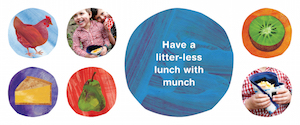Dealing with tantrums

Tantrums happen when children have frustration or stress that they cannot cope with. Children react to frustration in different ways and it's important to remember this when dealing with tantrums.
It is also important to remember that the anger of the tantrum is always mixed with other feelings. These may be feelings such as fear, jealousy, or feeling unwanted or unloved.
Young children often feel frustrated because there are so many things that they want to do and that they can’t yet do. In older children and teenagers it is likely to be because they feel prevented from having or doing what they want, especially if they are stressed.
Tantrums are are most likely to happen in toddlers. If there are many tantrums in older children you need to look for a cause or talk with a health professional about it.
Little tantrums
These only last a short time and the child’s feelings are not totally out of control. Young children do not always have the words to say what they need or want. Their world is full of bigger people telling them what to do and what not to do. Young children do not have many inner strengths to cope with stress and frustration.Sometimes children learn that busy parents are likely to give in to what they want if they ‘carry on’ long enough. This may mean constant asking, ‘whining’ or having little tantrums. The child is not out of control at this stage. She has learnt that tantrums work, e.g. gets something if she pesters long enough. Sometimes little tantrums can grow into big ‘boil over’ tantrums.
What parents can do
Think about your child’s life
What is happening in your child’s life if little tantrums happen often? It may seem as if the tantrum comes from something very small. However usually the ‘something small’ has come on top of a lot of other stresses or frustration in your child’s life, so it becomes the thing that tips him over into a tantrum.- Is it frustration from not being able to have or do something?
- Is it attention he needs, or is he tired, hungry or unwell?
- Are there any other stresses that could be affecting him - starting childcare, a new baby, parents arguing or parents feeling stressed or upset themselves?
- Is your life so busy that it is easier to give in to everything your child asks for?
- Are there too many ‘No’s’ in your child’s life?
Try to:
- spend regular relaxed time with your child
- give him lots of room to move and explore
- notice all the good things about him and let him know that you do.
Mean what you say
- Don’t give in to your child if he has a tantrum because he wants something. If the tantrum is small you might try saying ‘No’ and giving a reason once. For example ‘No, you can’t have a biscuit because it is almost tea time’.
- Try to distract your child by giving him something else to do. Let him help you cook dinner or let him choose a snack that you approve of. This may avoid the tantrum.
- Sometimes you can just ignore little tantrums. Sometimes being busy doing something will help them blow over.
- Sometimes a child’s feelings get more and more out of control until he gets into a ‘boil over’ tantrum. If you know the signs, step in first with whatever you know helps your child e.g. relaxation, distraction, talking about his frustration.
Avoiding tantrums
The best thing you can do about tantrums is to try to plan so they don’t happen very often. Planning will only work if you take into account your child’s needs as well as your own. The child’s need may be attention, less pressure, sleep, or to avoid hunger. What she wants might be a biscuit. Be firm about not giving the biscuit and try to be sure that her real needs are met.- Think about what is happening in your child’s life that is stressful and see if there is anything you can change.
- Make sure there are lots of positives in your child’s day.
- Go on outings after sleeps and meals and not when your child is hungry or tired.
- Distract her: ‘Look what I have got here’.
- Put things that she might want, but cannot have, out of sight.
- Keep a diary for a few days - when the tantrums happen, note what time of day, what you are doing when it happens and what your child is doing. If it always happens around tea time, try letting your child have her tea earlier, giving her a bath before tea, letting her help you prepare the meal, or having some special time with her at this time of day. This way you may be able to prevent the tantrum which is much better than dealing with it when it happens.
- Warm, gentle baths often help to settle children who seem frazzled.
Shopping centre tantrums
Tantrums in public are hard to cope with. Most parents feel embarrassed or may worry about others watching how they handle the situation. If they happen often, try to plan to avoid taking your child shopping. If possible leave your children with someone else. If you take them to the shops make sure they are not tired when you go. Take a snack for them to eat, make sure they have been to the toilet and try not to be too long. Let them help by getting things off the supermarket shelf for you.Having chats to other adults can result in young children getting bored, irritable and restless. A few minutes to you can seem like an hour to them.
Make the shopping trip a treat for everyone by having a drink or a little time in the park afterwards.
If a tantrum does happen you need to be strong enough to be able to leave the shopping basket where it is and take your child out to the car or somewhere quiet until the tantrum is over.
When your child copes well tell her you are pleased that she managed so well.
Big tantrums
Big tantrums are the ‘boil over’ kind where children can no longer control their feelings. This kind of tantrum is very frightening for children, as well as for many parents.When your child has this kind of tantrum she can’t listen to reason. Punishments such as consequences don’t work. Ignoring this kind of tantrum can be frightening for your child, because when she is out of control she needs to learn that feelings can be controlled. She needs to know that strong feelings can be managed and that you won’t hurt her or leave her.
What parents can do
No matter how much planning you do, some tantrums will happen.Let your child know that you can keep him safe and you will not punish or leave him. This is really major learning that he needs to have in order to learn to manage his own feelings.
- Don’t try to reason with your child at this time, he won’t be able to ‘hear’ you.
- Stay with your child during the tantrum. Hold him if you can, if not, stay close so you can touch him. Comfort him when the worst of the storm is over.
- Do not threaten - threatening to leave will make him feel even more upset and frustrated.
- If you are unable to stay near because your own feelings are in danger of getting out of control, tell your child that you will be leaving for a short time but will be back soon to look after him. Make sure he is safe and get someone else to stay with him if you can.
- Talk to your child gently but firmly, about how he feels and what is happening to him. You could say ‘You are feeling really upset and I will stay with you until you feel better. It’s alright to cry when you feel upset, but I won’t let you hit/kick/or whatever.’ You might have to hold your child to prevent this.
- It is important not to give in to whatever your child was wanting which started the tantrum.
- If your child is older and you can see his feelings getting out of control you might want to talk to him about going somewhere quiet until he can manage his feelings. You could go with him, or not, whichever he finds most helpful.
- When the tantrum is over, suggest something for him to do that you are happy with, giving both of you time to wind down. He might want to read a book, do a puzzle or go for a walk with you.
- When you manage the tantrum you teach your child that angry feelings don’t have to take over, and they can be managed and expressed in helpful ways. You are also teaching that however bad things are, you will not let him down.
- The way you handle these situations models behaviour that your child will copy.
At the start and the end of the day
Some days are worse than others. If you can see at the start of the day that it is going to be ‘one of those days’ take some time to do something relaxing with your child straight away.Leave whatever you thought you had to do and see if you can make the day a better one. A small amount of time at the start of the day sometimes saves a lot of time at the end of the day. At the end of the day, if it has felt like a bad day, make some time for relaxing, settling down and rebuilding your relationship. Some relaxing activities include:
- a walk in the park, or around the block
- sitting with your child to watch a quiet video
- play music or dance
- stories
- a bath
- massage and meditation (there are useful books for children’s meditation).
Older children
Most children grow out of tantrums by the time they go to school. If children of school age are still having tantrums it is likely to be because something is going wrong for them such as:
- stress, e.g. not coping with schoolwork or friends
- family problems, e.g. parents fighting or family break-up
- a health problem.
Take care of yourself
Taking care of a child who is having tantrums puts a great deal of stress on the carer. You need to look after yourself in order to be able to do this.- Try to be creative in finding ways that will help you feel better.
- Don’t spend energy feeling guilty about ignoring jobs that ‘should be done’.
- Talk to your partner about your need for time and support to ‘recharge your batteries’.
- If you can, get someone else to take care of your young child for a while during the day so you can take some time out for yourself.
- Sometimes just getting outdoors and having some space around you helps.
- At the end of the day after your child has settled into bed, make time for your own needs.
- If you feel things are really bad, talk to someone who understands what you’re going through. This may be with a trusted friend or a professional person.
Dealing with tantrums can be challenging but they will pass you will get your sweet child back again!
More help!
Here are some more articles that may help you when dealing with tantrums:Article provided courtesy of Parenting SA
advertisements






| 1. 10 candles to light your fire - how much fun can you fit on your cake?! 2. Hoopla kids - Scrumptious looking gears to brighten your kids' wardrobes 3. How to dress your child for a special occasion 4. Fruity pineapple flamingo party - Sweet, bright and sunny 5. Spanish Baby Bites- European sleeping bags that are unique and adorable |
|
|
| 1. Upcycling baby clothes - Turn your most treasured items into something that lasts 2. Grace's ballet party - celebrate your tiny dancer 3. After the birth - What to expect when you've welcomed your bundle of joy 4. Lalaloopsy party - How to craft your party around a centrepiece 5. 10 candles to light your fire - how much fun can you fit on your cake?! |
|
|
| 1. Scone peapods - the cutest and most delicious vegetables around 2. Lalaloopsy party - How to craft your party around a centrepiece 3. Superkids Scroggin- An innovative lunchbox idea 4. Jeffrey's Lego Party - totally Legotastic 5. Best indoor playsets - Unbelievable fun most of us can only dream of! |





